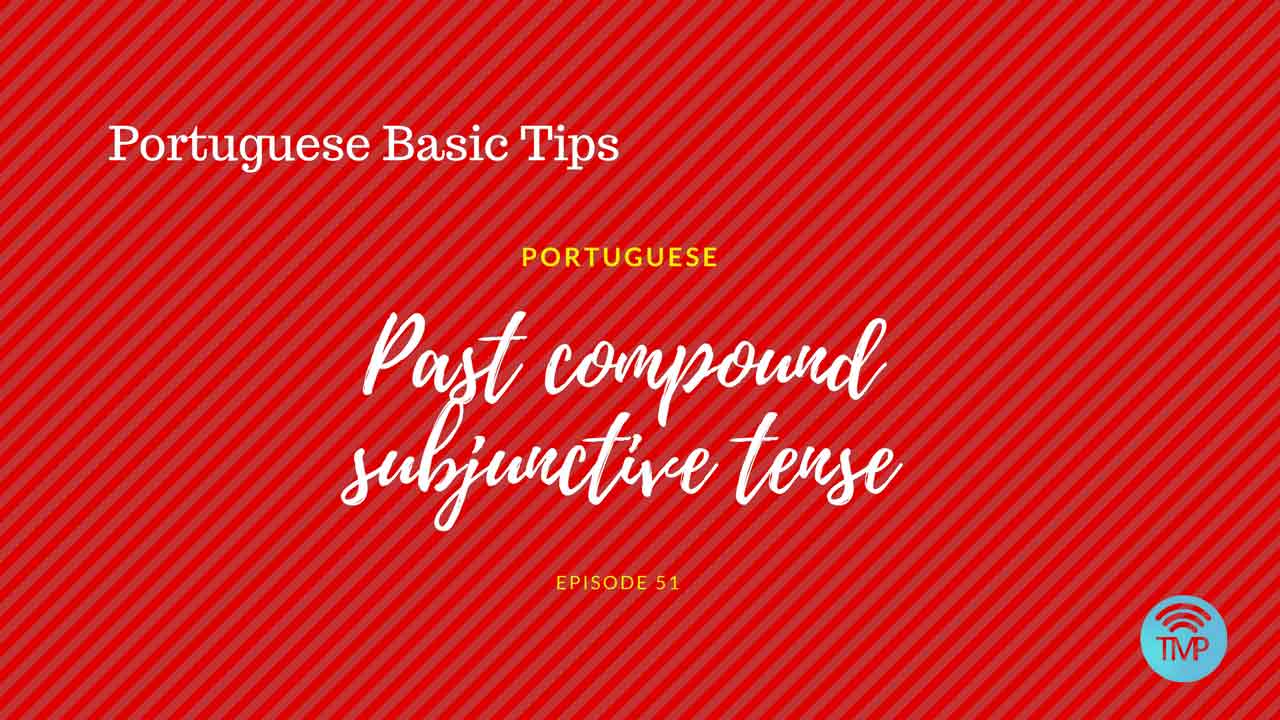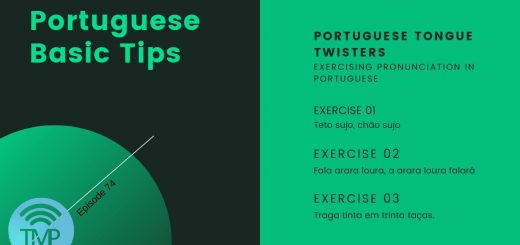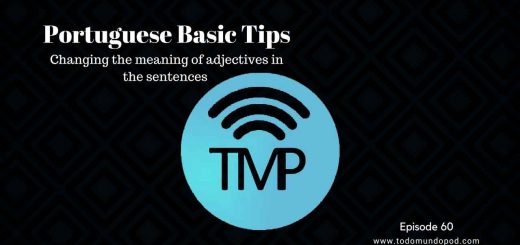Portuguese past compound subjunctive tense

Portuguese past compound subjunctive tense
Hello and welcome to our Portuguese Basic Tips (in English) called Portuguese past compound subjunctive tense
On today’s podcast, we’re going to speak about Portuguese past compound subjunctive tense. To be straight with you, this is not actually a “basic tip” in Portuguese. However, we have already built a knowledge base on this topic so far so that it will be possible for you to understand everything what I say here. Besides that, you can listen to it over and over, till you feel comfortable with the subject.
Click on the following links to listen to our previous episodes about Portuguese subjunctive tense
Portuguese Basic Tips 48: Portuguese present subjunctive tense
Portuguese Basic Tips 49: Portuguese past subjunctive tense
Portuguese Basic Tips 50: Portuguese future subjunctive tense
We have compound verbal tenses in Portuguese when we mix two verbs, being that the first one is called “auxiliary verb” and the second one will be considered as the “main verb” in the sentence.
For instance:
- Eu espero que você tenha estudado (I hope you have studied).
This is what we call compound subjunctive. In this case, “pretérito perfeito composto do subjuntivo em Português” – Past compound subjunctive tense in Portuguese.
Note we have two verbs: ter (to have, which is the auxiliary verb) and “estudar” (to study, the main verb. In Portuguese we call it particípio).
Particípio are verbs ending with “ado” and “ido” in its regular forms. For instance: estudado, escutado, vendido, sentido.
Portuguese past compound subjunctive tense
We use Portuguese past compound subjunctive tense to indicate an earlier action that has already been completed, that has already been finished.
The formula for using this kind of verb is to take the verb ter (to have) in the present subjunctive tense, mixing with the particípio of the main verb.
Let’s see a few examples:
- Eu espero que você tenha estudado (I hope you have studied) – Tenha (to have – in the past tense / Estudado – Particípio of the main verb).
- Eu espero que você tenha entendido (I hope you have understood it). Tenha (to have – in the past tense / Entendido – Particípio of the main verb).
Finishing these explanations here, note that when we are conjugating those verbs using Portuguese past compound subjunctive tense, we just need modify the auxiliary verb, we just need to change the verb “ter”. The main verb stays “the same”, the main verb remains in the particípio form.
Let’s practice a little bit. Repeat with me
Portuguese past compound subjunctive tense – Estudar Verb (To study)
| Estudar (To study) | Portuguese past compound subjunctive tense |
| (Que) eu tenha | Estudado |
| (Que) tu tenhas | Estudado |
| (Que) ele tenha | Estudado |
| (Que) nós tenhamos | Estudado |
| (Que) vós tenhais | Estudado |
| (Que) eles tenham | Estudado |
Sentir verb – Portuguese past compound sunjunctive tense
| Sentir (to feel) | Portuguese past compound subjunctive tense |
| (Que) eu tenha | Sentido |
| (Que) tu tenhas | Sentido |
| (Que) ele tenha | Sentido |
| (Que) nós tenhamos | Sentido |
| (Que) vós tenhais | Sentido |
| (Que) eles tenham | Sentido |
We also have some verbs that have an “irregular particípio”. That is, they don’t finish with “ado” or “ido”. For instance, if you want to speak in Portuguese “I hope you have said that”, you should say “Eu espero que você tenha dito aquilo”. Dizer verb in Portuguese has an irregular particípio form, but I do not want you to worry about it. For now, it’s important for you to focus on understanding how it all works.
Become a Premium Member and download our transcripts
If you feel comfortable with it, try to visit this link in Portuguese to learn more about Portuguese compound verbs
That’s enough for today!
I hope you like it.
See you next time.
Thanks
Marcos Sales
Podcast (portuguesebasictips): Play in new window | Download







Recent Comments